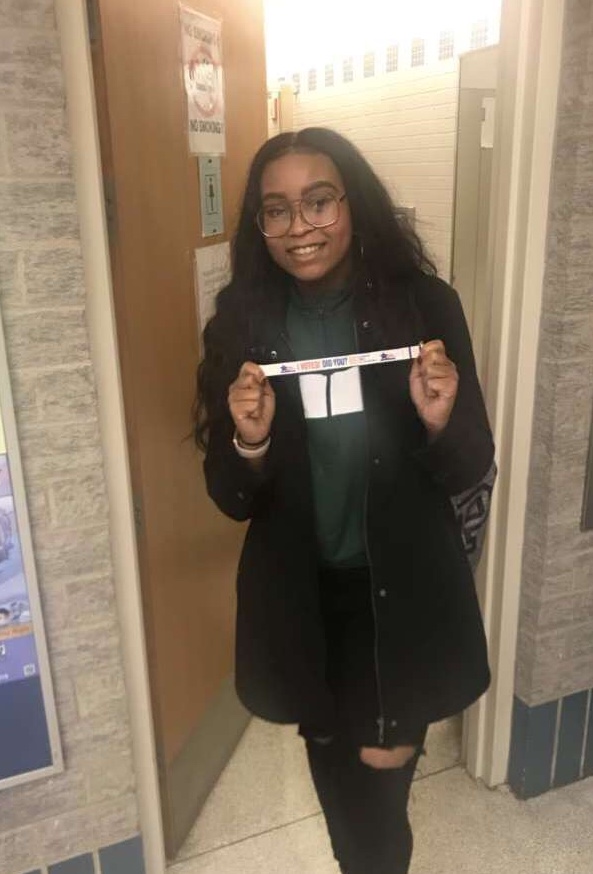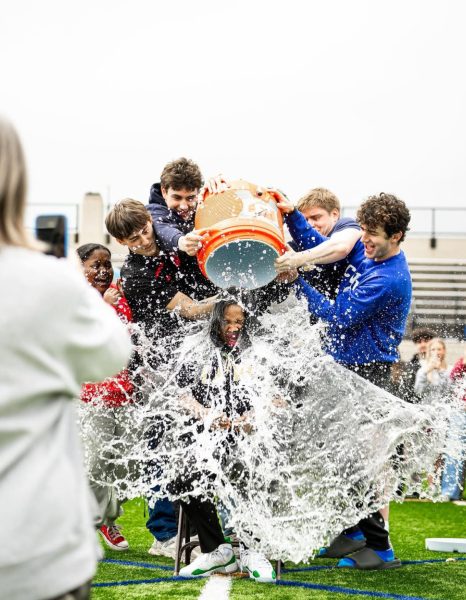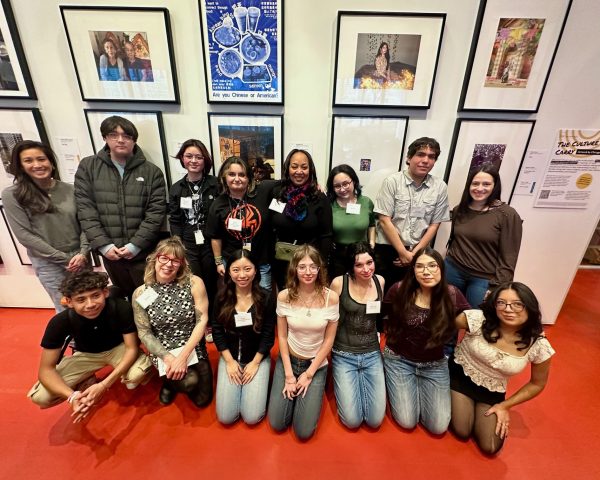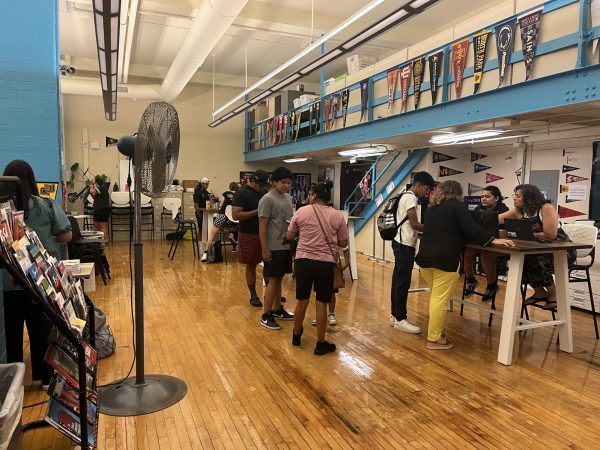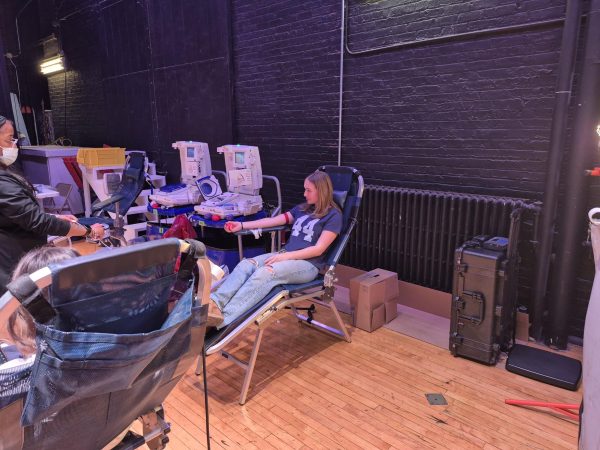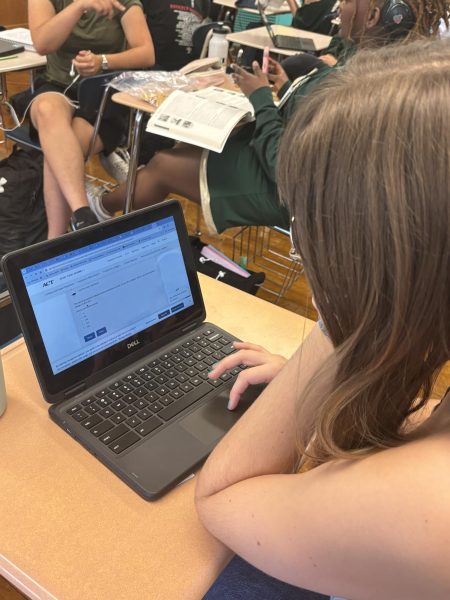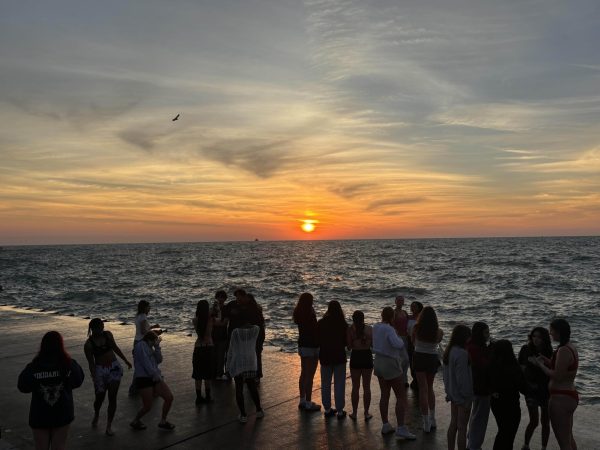Becoming informed and involved: Students participate in midterm elections
Kylisha South holds her “I Voted” sticker up after she casts her votes for the midterm elections. (Photo courtesy of Kylisha South)
November 6: Election day. Candidates are whipped up into a frenzy trying to get as many people as they possibly can to get out and vote.
The importance of the youth vote in politics is quite apparent. Politicians often angle their campaigns towards younger people and encourage them to vote because they know that the younger demographic makes a significant impact on election results.
“Increasing youth voting increases the interest of politics, which is definitely a positive side effect, but the major benefit is that politicians and political affairs will reflect the America the younger generations with to see,” Kendall Anderson, Div. 067, said.
The youth vote benefits both the voter and many politicians. During the 2018 midterm elections, candidates like Ted Cruz and Beto O’Rourke have been using their campaigns to appeal to youth voters. These campaigns support each candidate and attempt to educate younger voters.
Even with the power behind the youth vote, only 40 percent of 18-29 year-olds have said that they will be voting in the 2018 midterm elections, according to TIME Magazine. With less than half of 18-29 year-olds participating in voting, their political impact is lessened.
Eligible youth are encouraged to register by posters hung all over school walls and by influential companies such as Elle magazine, HBO and MTV.
Among visual promotions and major company promos, celebrities like Jake Gyllenhaal, Lenny Kravitz, Laura Linda Bradley and John Krasinski are encouraging eligible youth to register to vote. Many of these major promotions are done through Twitter.
On Twitter last month, Elle Magazine tweeted, “Kim Kardashian and Kanye West are splitting up ??” and wrote a link to this so-called article. Upon clicking the link, their Twitter followers were taken to a voter registration website.
Kylisha South, Div. 965, thinks that the youth vote makes a big impact and that it’s important for young people to get educated on candidates and to register to vote.
“We are the future,” South said. “If we are the future leaders and we want to make this world better for us, then we have to participate in any and all activities to help us get to where we are going.”
However, many eligible citizens decide to not register to vote. In 2016, about 21.4 percent of people eligible to register did not, according to TIME Magazine. This has been a consistent trend for decades.
“If more young people voted, we would see the change we’ve protested, marched, ranted and rallied for,” Anderson said.
According to WTTW News, as of 2017, 8 million Illinois residents were registered to vote. This is a record high, beating Illinois’ previous record of 7.5 million registered voters in 2016.
Although this could mean more crowded voter registries and polling places, it also means more accurate elections, according to WTTW News.
Although voting may take some time, typically, the process of registering does not. Registering to vote no longer needs to be done in person at your local or state election office. Now it can be done online.
“Registering to vote is so much easier than people imagine,” Anderson said. “In my AP Government class, my teacher registered a senior to vote while we all watched; it literally took under a minute.”
Many juniors like Anderson are thinking about registering to vote a few years from now.
“That’s why it is important that the younger people know what is going on, so that we aren’t left in the dark when we hear about important political affairs,” Anderson said.
By staying aware and involved, young Americans can get a scope for the political environment before they cast their votes.
“I feel like it is now becoming more and more important to follow politics because it continues to become more confusing and hectic, almost to the point where it is imperative that people understand what’s going on,” Anderson said.
Your donations directly fund the Lane Tech student journalism program—covering essential costs like website hosting and technology not supported by our school or district. Your generosity empowers our student reporters to investigate, write, and publish impactful stories that matter to our school community.
This website is more than a publishing platform—it's an archive, a research tool, and a source of truth. Every dollar helps us preserve and grow this resource so future students can learn from and build on the work being done today.
Thank you for supporting the next generation of journalists at Lane Tech College Prep!
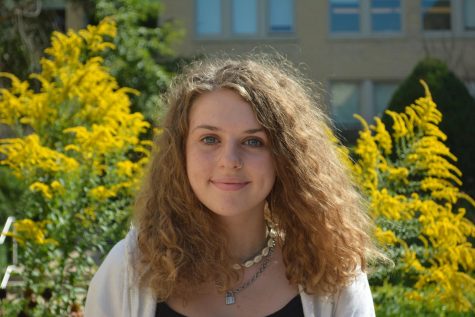
Ella, a senior, is enjoying her third and final year with The Champion (formerly The Warrior). She continues to explore the world of literature and history...

